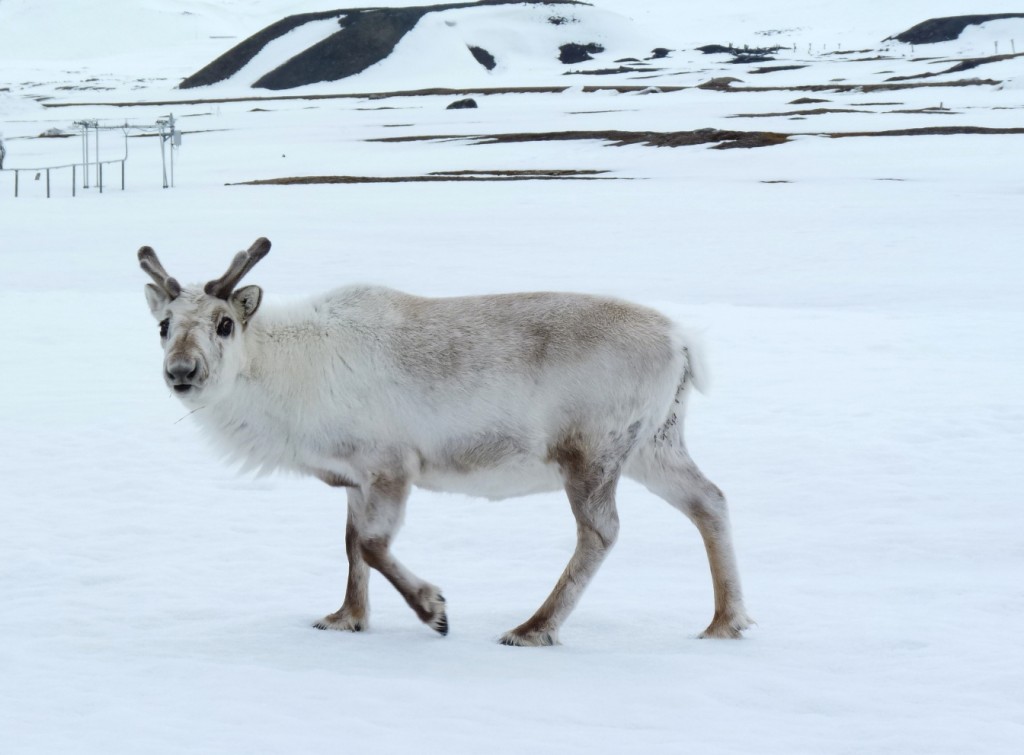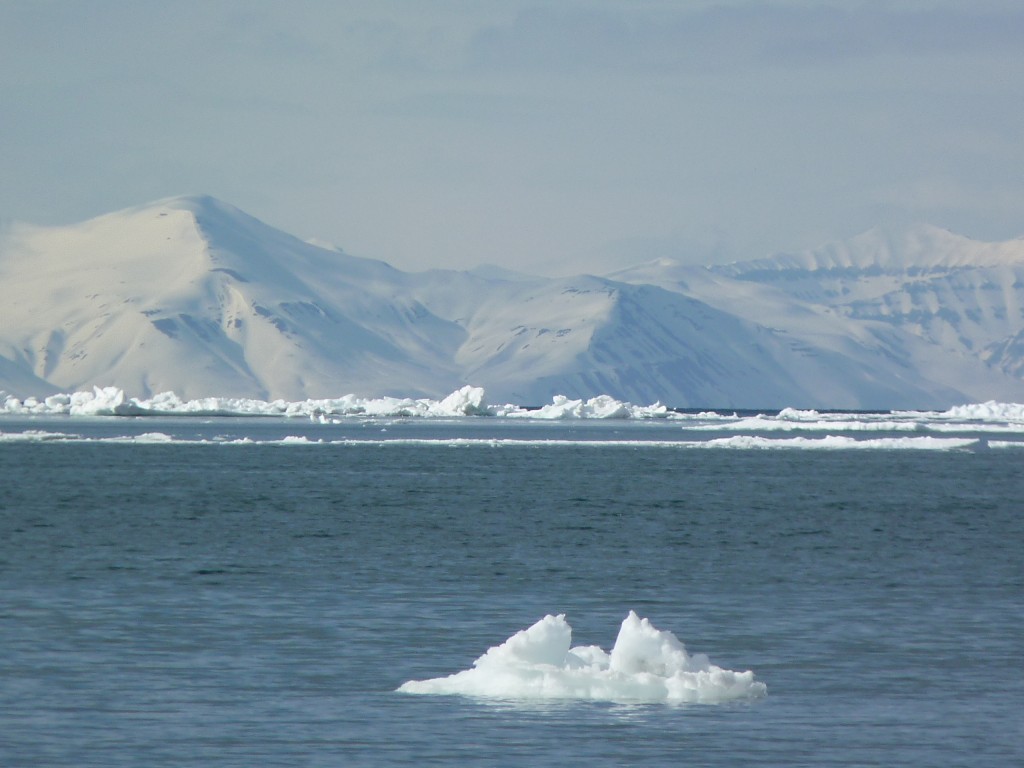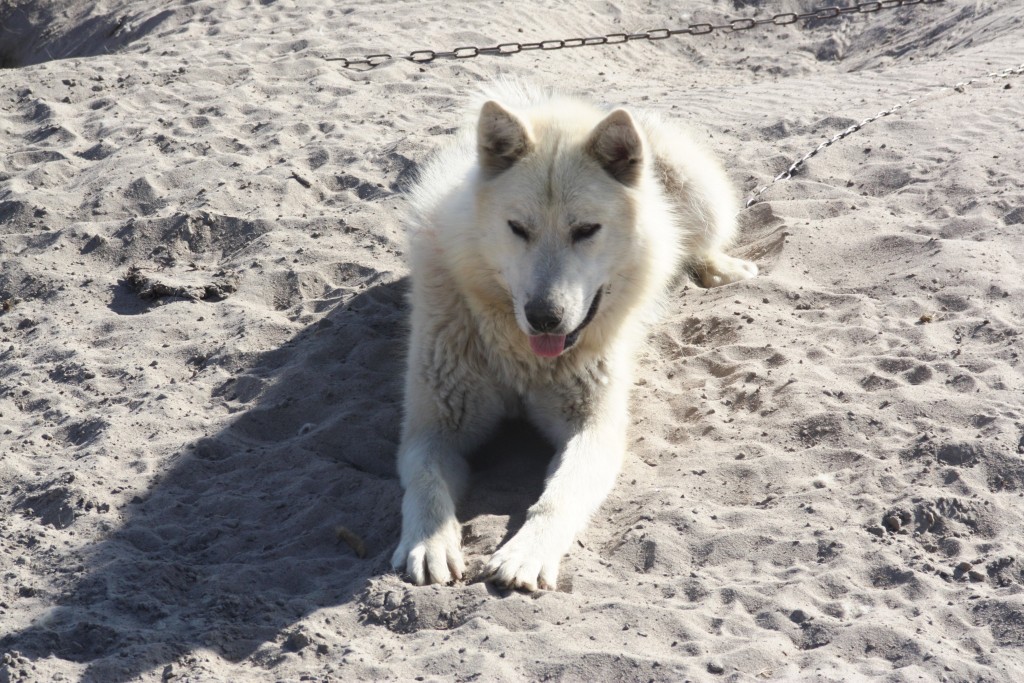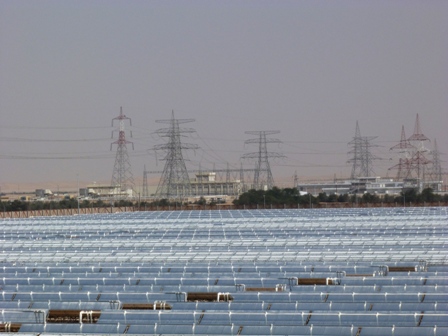New report sees Arctic melt on course to tip global climate
Scientists say the Arctic archipelago of Svalbard has seen such extreme warmth this year that the average annual temperature could end up above freezing for the first time on record. Ketil Isaksen of the Norwegian Meterological Institute said today the average temperature in Longyearbyen, the main settlement in Svalbard, is expected to be around 0 Celsius with a little over a month left of the year. He called the abnormal warmth “shocking” and beyond anything he could have imagined 10 years ago. The normal yearly average is minus 6.7 C.
And that is not the only shocking thing going on up north. The Arctic sea ice is melting in November. Temperatures in the region are 20 degrees Celsius above usual. Reindeer are dying across Siberia. Polar bears are stranded on land. It’s hard to keep up with the extent and speed of climate change in the far north of the planet. And we in the media have to be aware of the danger that the reports become so commonplace the “new normal” no longer arouses interest.

Svalbard’s sturdy reindeer are adapting to climate change. In Siberia, thousands of animals have died of starvation. (Pic: I.Quaile)
Warming, warming, hot
Yet the ever faster melting of our Arctic ice could spell disaster even for distant regions of the planet. What happens in the Arctic doesn’t stay in the Arctic, as discussed here on the Ice Blog many times before. But a new, key report launched today indicates that the effects of increasingly rapid Arctic warming could be set to push global climate change out of control.
The Arctic Resilience Assessment (ARA) is an Arctic Council project led by the Stockholm Environment Institute and the Stockholm Resilience Centre. It is based on collaboration with Arctic countries and Indigenous Peoples in the region, as well as several Arctic scientific organizations. The ARA (previously Arctic Resilience Report) was initiated by the Swedish Ministry of the Environment as a priority for the Swedish Chairmanship of the Arctic Council (May 2011 to May 2013) and is being presented under the US Chairmanship. It aims to synthesize knowledge on Arctic change and how people and the ecosystem are coping with it, bringing the wide range of different factors together.
“Environmental, ecological, and social changes are happening faster than ever in the Arctic, and are accelerating. They are also more extreme, well beyond what has been seen before. This means the integrity of Arctic ecosystems is increasingly challenged, threatening the sustainability of current ways of life in the Arctic and disruption of global climate and ecosystems”, the report says.
Beyond the tipping point
The researchers issue a stark warning: “Some changes are so substantial (and often abrupt), that they fundamentally alter the functioning of the system: an ecological “tipping point” has been crossed. The report examines 19 of these “tipping points” or “regime shifts”, as they are also known: “They affect many ecosystem services that are important to people within and outside the Arctic: from regulating the climate, to providing sustenance (e.g. through fishing)”, the experts tell us.
“The consequences of some of these shifts are likely to be surprising and disruptive – particularly when multiple shifts occur at once. By altering existing patterns of evaporation, heat transfer and winds, the impacts of Arctic regime shifts are likely to be transmitted to neighbouring regions such as Europe, and impact the entire globe through physical, ecological and social connections”, the report says.
The tipping points discussed in the report include the replacement of white ice and snow, which reflect heat back into space, by darker green vegetation or ocean water, which absorbs more heat, higher releases of methane and changes to ocean circulation and so weather patterns around the globe caused by an influx of melting snow and ice.
Major impacts inevitable?
Johan Rockström, director of the Stockholm Resilience Centre and co-chair of the five-year study said in a statement: “If multiple regime shifts reinforce each other, the results could be potentially catastrophic.… The variety of effects that we could see means that Arctic people and policies must prepare for surprise. We also expect that some of those changes will destabilize the regional and global climate, with potentially major impacts”.
The report stresses that many of the changes and feedback effects in process are poorly understood and in need of much more research.
“Arctic ecological protection is now a global concern, and worldwide monitoring is inadequate”, the authors write.
Political “regime shift”?
To reduce the risk of these tipping points, strong action would have to be taken to mitigate climate change, the authors conclude. Aha. Now there’s the rub.
In the Guardian, Fiona Harvey notes the report comes at a critical time in politics, with Donald Trump’s announcement this week that he plans to take away NASA’s budget for climate science and put it into space exploration. She quotes Marcus Carson of the SEI, co-editor of the report:
“That would be a huge mistake…It would be like ripping out the aeroplane’s cockpit instruments while you are in mid-flight”.
If Mr. Trump also makes good his pledge to revive the US coal industry and abandon the Paris Climate Agreement, the chances of halting warming and the climate feedback mechanisms which could spell disaster would seem to be melting away along with that Arctic ice. Not so tasty food for thought this weekend. Well, I could distract myself by getting out the lawnmower. It has been so warm here this week the birds are chirping like spring and the grass has started to grow again.



















Feedback